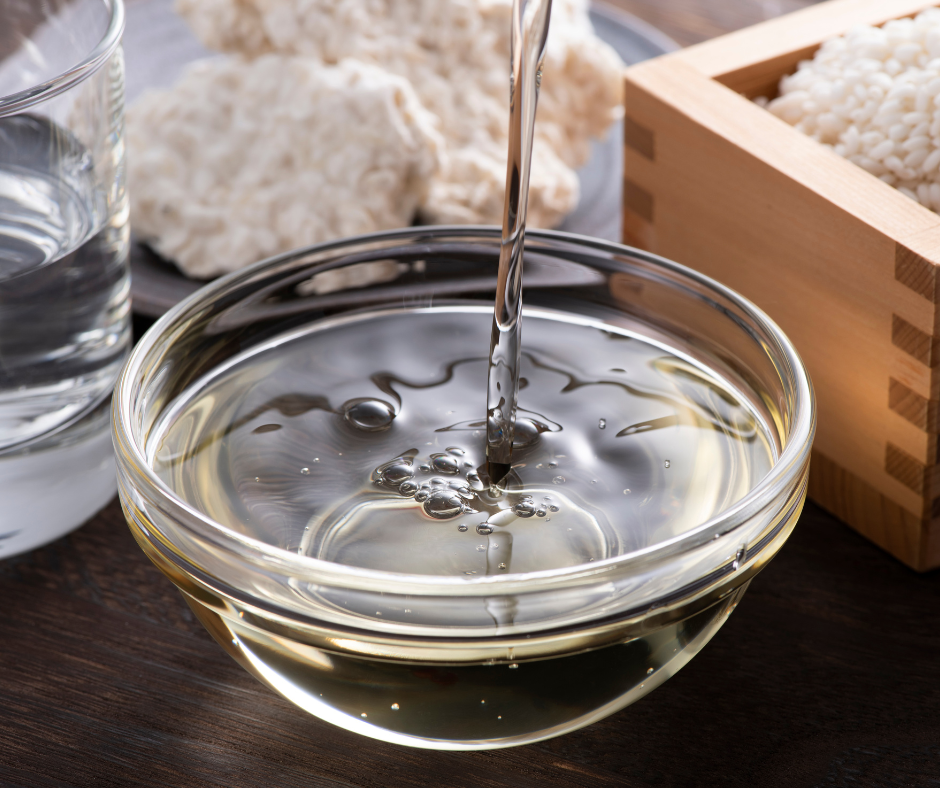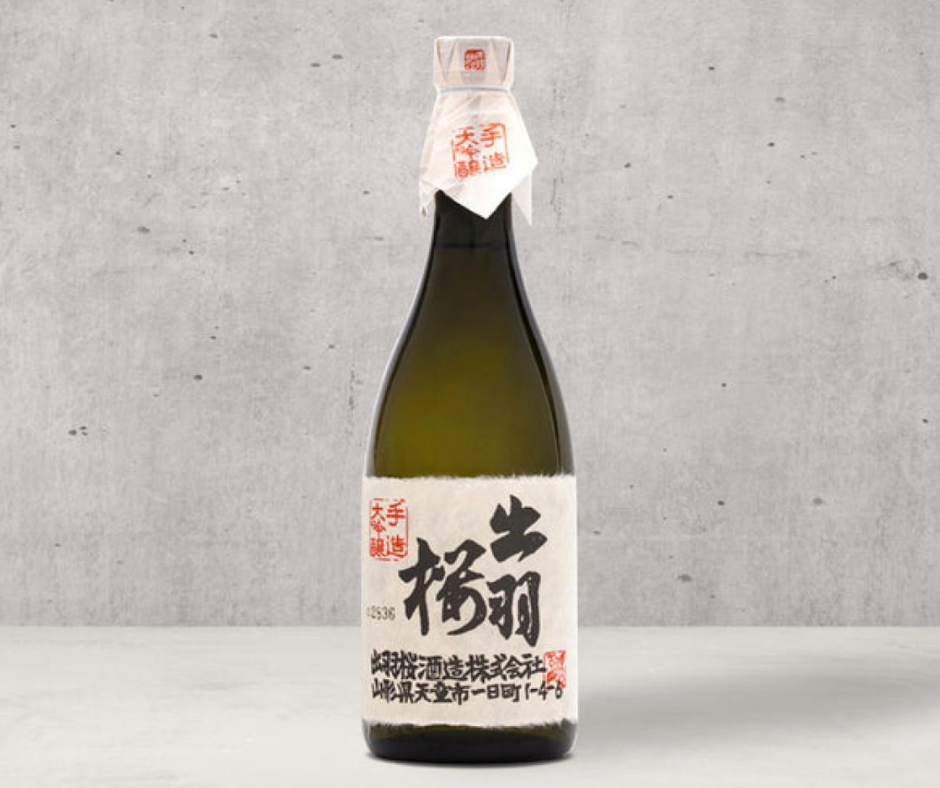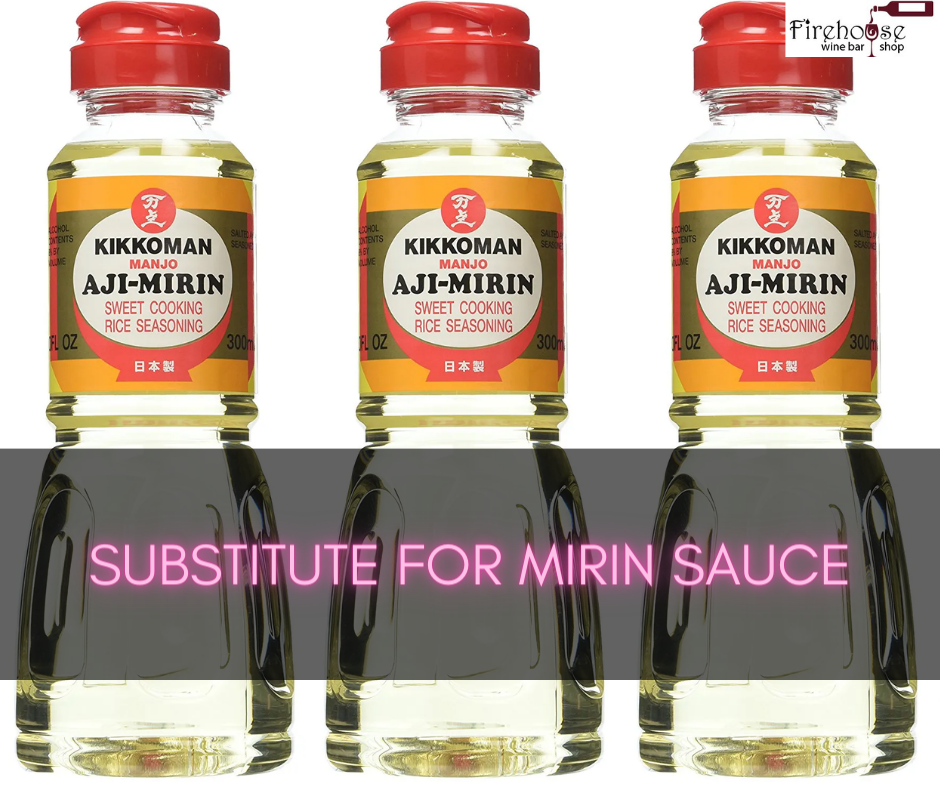Introduction
What Is Mirin Sauce And Its Traditional Uses
Mirin sauce is a key ingredient in Japanese cuisine. It is a sweet rice wine that adds a subtly sweet and mildly acidic flavor to dishes. Traditionally, mirin sauce is used in sauces, glazes, and marinades for dishes such as teriyaki, sukiyaki, and yakitori. The sweet and tangy taste of mirin sauce enhances the overall flavor profile of these dishes, adding depth and complexity. However, if you want to find a Substitute For Mirin Sauce, this blog will cover it.
Common Ingredients In Mirin Sauce
Mirin sauce is typically made from glutinous rice, koji (a type of mold), and a small amount of distilled alcohol. The rice is fermented with koji, breaking the starches into sugars. The resulting liquid is then aged for several months to develop its unique flavor.
However, if you cannot find mirin sauce or prefer a non-alcoholic alternative, there are several substitutes you can try. These substitutes can provide a similar sweet and tangy flavor to your dishes:
- Rice Vinegar: Rice vinegar is made from fermented rice and tastes slightly acidic. It can be diluted with a little sugar or honey to mimic the sweetness of mirin sauce.
- Sake: Sake is a Japanese rice wine that can be used as a substitute for mirin sauce. While it is not as sweet as mirin, it still adds a pleasant umami flavor to dishes.
- Sweet Sherry: Sweet sherry is a fortified wine with a similar sweetness to mirin sauce. It can be used as a substitute in equal amounts.
- White Wine with Sugar or Honey: If you don’t have any of the above options, you can use white wine and add some sugar or honey to achieve a similar sweetness.
Remember, these substitutes may not provide the exact flavor profile of mirin sauce, but they can still enhance the taste of your dishes. It’s always a good idea to taste and adjust the seasoning accordingly when using a substitute.

Substitute For Mirin Sauce In Cooking
When cooking Japanese cuisine, mirin sauce enhances the flavors of marinades, glazes, stir-fries, and sauces. But what if you don’t have mirin sauce or prefer a non-alcoholic alternative? Don’t worry; several substitutes can still give your dishes a similar sweet and tangy flavor.
Substitute For Mirin Sauce For Marinades And Glazes
If you’re planning to make a teriyaki sauce or a delicious marinade, here are some substitutes you can try:
- Rice Vinegar: Rice vinegar, with its slightly acidic taste, can mimic the tanginess of mirin sauce. To add sweetness, dilute it with a little sugar or honey according to your taste.
- Sake: Sake, a traditional Japanese rice wine, can substitute for mirin sauce. Although it’s not as sweet, it adds a pleasant umami flavor to your marinades and glazes.
- Sweet Sherry: It can be an excellent alternative to mirin sauce if you have sweet sherry on hand. Its similar sweetness can provide a delicious depth to your dishes.
Substitute For Mirin Sauce For Stir-fries And Sauces
When it comes to stir-fries and sauces, here are a couple of substitutes you can rely on:
- White Wine with Sugar or Honey: If you don’t have any of the above options, add white wine, sugar, or honey to achieve a similar sweetness to mirin sauce.
- Over-the-counter Mirin-Style Condiments: In some grocery stores, you can find mirin-style condiments that are alcohol-free but still provide the same flavor profile. These can be a convenient substitute for traditional mirin sauce.
While these mirin substitutes may not be a perfect match, experimenting with them and adjusting proportions can still yield delicious results in dishes such as teriyaki sauce, marinades, or glazes. So don’t hesitate to try these alternatives and make the most of the available pantry options. Creativity allows you to create mouthwatering Japanese-inspired meals without relying on mirin sauce.
In conclusion, Substitute For Mirin Sauce, like rice vinegar, sake, sweet sherry, white wine with sugar or honey, and over-the-counter Mirin-style condiments, can help you achieve a similar sweet and tangy flavor profile in your dishes. So gather your family and friends, and enjoy exploring these options in your kitchen.
Rice Vinegar As A Mirin Sauce Substitute
Rice Vinegar As A Substitute For Mirin Sauce In Cooking
When substituting mirin sauce in cooking, rice vinegar is a popular choice. Rice vinegar, with its fermented and slightly salty taste, can mimic the tanginess of mirin sauce. However, since mirin is sweeter than rice vinegar, you may need to add a little sugar to achieve a similar level of sweetness.
To use rice vinegar as a substitute for mirin sauce in cooking, mix one tablespoon of rice vinegar with ½ teaspoon of sugar. Stir the mixture well to dissolve the sugar, and use it in your recipe as you would with mirin sauce. Remember that the sweetness may vary depending on the brand and type of rice vinegar, so adjust the amount of sugar according to your taste.
Rice Vinegar As A Substitute For Mirin Sauce In Sushi Rice
Rice vinegar is also commonly used as a substitute for mirin sauce in sushi rice. Mirin sauce provides a slight sweetness and tanginess to the rice, which can be replicated with vinegar.
Mix one tablespoon of rice vinegar with one teaspoon of sugar and a pinch of salt to substitute mirin sauce in sushi rice. Dissolve the sugar and salt in the rice vinegar, then gently mix it into the cooked sushi rice while it’s still warm. This will help create sushi rice’s traditional flavor and texture without mirin sauce.
In cooking and sushi rice recipes, rice vinegar can provide a similar flavor profile to mirin sauce. However, it’s important to note that the exact taste may not be identical so that adjustments may be necessary based on personal preference.
Rice vinegar is a versatile substitute for mirin sauce in various dishes. Its tangy and slightly sweet taste can help enhance the flavors of your recipes, allowing you to enjoy delicious Japanese-inspired meals even without mirin sauce.
Sake As A Mirin Sauce Substitute
Using Sake As A Substitute For Mirin Sauce In Recipes
Sake, a traditional Japanese rice wine, can substitute for mirin sauce in various recipes. While it may not have the exact sweetness and depth of flavor as mirin sauce, sake can still bring a unique taste to your dishes. When substituting sake for mirin sauce, remember that sake has a higher alcohol content and less sweetness. Add a small amount of sugar or honey to the sake to achieve a similar flavor profile.
When using sake as a substitute, it’s important to consider the cooking process. Sake has a stronger flavor than mirin sauce, so it may take some experimentation to find the right balance for your recipe. It’s recommended to start with a smaller amount of sake and gradually adjust to taste.
Using Sake As A Substitute For Mirin Sauce In Japanese Dishes
In traditional Japanese cuisine, mirin sauce is commonly used in dishes such as teriyaki, yakitori, and sukiyaki to add a subtle sweetness and depth of flavor. If you don’t have mirin sauce, sake can be a suitable alternative.
To create a flavorful marinade and glaze, you can combine sake with soy sauce, sugar, and ginger for teriyaki sauce. When making yakitori, a popular Japanese skewered chicken dish, you can substitute mirin sauce with a mixture of sake, soy sauce, and sugar. In sukiyaki, a hot pot dish, you can replace mirin sauce with sake and sugar to achieve a similar flavor profile.
Remember, when using sake as a substitute for mirin sauce in Japanese dishes, adjust the sweetness and flavor according to your taste preferences. Remember that each dish may require different ratios, so it’s important to experiment and find the perfect balance.
While sake can be a suitable substitute for mirin sauce, it’s important to acknowledge that the taste may not be the same. Mirin sauce has a distinct sweetness and umami flavor that sake alone may not provide. However, with some adjustments and creativity, sake can still enhance the flavors of your dishes and create delicious Japanese-inspired meals.

Sweet Sherry As A Mirin Sauce Substitute
Using Sweet Sherry As A Substitute For Mirin Sauce In Cooking
Sweet sherry can be an excellent substitute for mirin sauce in various cooking recipes. While it may not provide mirin’s exact sweetness and flavor profile, sweet sherry can still add a unique taste to your dishes. Sherry is a fortified wine with a similar body and flavor to mirin, making it a suitable alternative. Its sweetness and complexity can enhance the flavors of your dishes, especially when used in marinades, glazes, or sauces.
When substituting sweet sherry for mirin sauce, remember that sherry generally isn’t as sweet. If you only have dry sherry on hand, you can still use it as a substitute by adding sugar in the same ratio noted above for sake. The added sugar helps to balance out the dryness and mimic the sweetness of mirin. However, it’s important to adjust the sweetness according to your taste preferences.
Using Sweet Sherry As A Substitute For Mirin Sauce In Desserts
Sweet sherry can also substitute for mirin sauce in desserts, particularly in recipes that call for a sweet and wine-like flavor. Its sweetness and rich flavor can complement various dessert dishes, such as poached fruits, custards, or even ice creams. When using sweet sherry as a substitute, it’s important to consider the alcohol content. The alcohol may not fully cook off in the dessert, so it’s recommended to use it in moderation.
In conclusion, sweet sherry can be a versatile substitute for mirin sauce in cooking and dessert recipes. Its similar sweetness and complexity make it an excellent alternative, especially when combined with added sugar for dry sherry. However, it’s important to note that while sweet sherry can enhance the flavors of your dishes, it may not provide the exact taste as mirin. With some experimentation and creativity, you can use sweet sherry to create delicious dishes and desserts with a unique twist.
Honey Or Maple Syrup As A Mirin Sauce Substitute
Using Honey Or Maple Syrup As A Substitute For Mirin Sauce In Recipes
When finding a substitute for Mirin Sauce in recipes, honey and maple syrup can be excellent options. While they may not provide the exact flavor profile of Mirin, they can still add a touch of sweetness and enhance the overall taste of your dishes.
Honey, in particular, has a natural sweetness that closely resembles Mirin’s mild sweetness. It can be used in recipes such as teriyaki sauce, marinades, or stir-fries. To use honey as a substitute, use the same amount as the Mirin called for in the recipe. However, remember that honey can have a more pronounced flavor, so you might want to adjust the quantities according to your taste preferences.
On the other hand, maple syrup can give a unique twist to your dishes. It adds a slightly different flavor profile compared to Mirin, with its rich and caramel-like taste. Maple syrup works well in recipes like glazes for roasted vegetables, marinades for meat, or even in salad dressings. When substituting Mirin with maple syrup, you can use the same amount as called for in the recipe and adjust as needed.
Using Honey Or Maple Syrup As A Substitute For Mirin Sauce In Glazes
Honey and maple syrup can also be substituted for Mirin Sauce in glazes. Their natural sweetness and thick consistency make them perfect for creating delicious and sticky glazes for meats or vegetables. The caramelization of honey or maple syrup can add depth and complexity to your dishes.
To make a glaze using honey or maple syrup as a substitute for Mirin Sauce, combine the sweetener with other ingredients such as soy sauce, ginger, garlic, or any other flavorings according to your recipe. Bring the mixture to a simmer and reduce until thick and glossy. Brush the glaze onto your desired protein or vegetables during cooking or before serving.
While honey and maple syrup may not be exact substitutes for Mirin Sauce, they can still provide great results and unique flavors in your dishes. So, don’t hesitate to give them a try and experiment with different proportions to find the perfect balance for your taste buds.
Cooking Wine As A Mirin Sauce Substitute
Using Cooking Wine As A Substitute For Mirin Sauce In Cooking
Cooking wine can be a versatile and easily accessible substitute for Mirin Sauce in various cooking applications. Dry white wine, such as Sauvignon Blanc or Chardonnay, is a popular choice that can provide a similar acidic and fruity flavor to Mirin. However, it is important to note that cooking wine has a higher alcohol content than Mirin, so adjustments may be needed to balance the flavors properly.
When cooking wine as a substitute, use the same amount as the Mirin called for in the recipe. However, keep in mind that cooking wine lacks the sweetness of Mirin, so you may need to add a sweetener like sugar or honey to achieve a similar taste profile. Begin by adding a small amount of sweetener and gradually adjust to taste.
Using Cooking Wine As A Substitute For Mirin Sauce In Sauces
Cooking wine can also be used as a substitute for Mirin Sauce in various sauce recipes. It can add flavor and complexity to your dishes, similar to Mirin. For instance, you can use cooking wine in teriyaki sauce, glazes, or marinades.
To substitute Mirin with cooking wine in sauces, use the same amount as the Mirin called for. However, remember that cooking wine may have a stronger flavor, so you might want to reduce the quantity slightly or dilute it with water to achieve the desired taste. Additionally, consider adding a sweetener like sugar or honey to balance the flavors.
Experimentation is key when using cooking wine as a Mirin substitute. Adjust the ratios according to your taste preferences, and don’t be afraid to add other ingredients like vinegar or citrus juice to enhance the flavor profile. Remember, the goal is to achieve a balance of acidity and sweetness similar to Mirin.
In conclusion, cooking wine can be a suitable substitute for Mirin Sauce in cooking and sauces. Its acidity and depth of flavor can provide a similar effect, although adjustments may be necessary to account for the differences in sweetness. Be sure to taste and adjust to create delicious dishes with cooking wine as a Mirin substitute.

Combining Ingredients For A Mirin Sauce Substitute
Creating A Homemade Substitute For Mirin Sauce With Multiple Ingredients
If you find yourself without mirin for your recipe, fear not! You can combine several ingredients to create a homemade Substitute For Mirin Sauce. Using a mixture of common pantry ingredients can achieve a similar taste and effect in your dishes.
Combining equal parts of sake, sugar, and water is one option. Sake, a Japanese rice wine, provides a similar flavor profile to mirin. The sugar adds sweetness, while water helps to dilute the mixture to achieve the desired consistency. Mix the ingredients and simmer over low heat until the sauce becomes thick and syrupy. This homemade mirin sauce can be used as a marinade, dipping sauce, or glaze in various dishes.
Another option is to combine rice vinegar, sugar, and a small amount of dry white wine or sherry. Rice vinegar has a mild and tangy flavor that can mimic the acidity of mirin. The sugar adds sweetness, while the dry white wine or sherry brings a depth of flavor. Adjust the proportions to suit your taste preferences and the dish you prepare.
Proportions And Tips For Combining Ingredients
When combining ingredients for a Substitute For Mirin Sauce, it is important to consider the proportions and adjust as necessary. The sweetness, acidity, and overall flavor profile can vary depending on the ingredients used.
Start using the suggested proportions as a baseline, but feel free to experiment and adjust to suit your preferences. Taste the mixture and add more sugar for sweetness, vinegar for acidity, or water to dilute the flavors if needed.
Remember that these mirin substitutes may not be a perfect match, but you can still yield delicious results with some experimentation and adjustments. Whether making teriyaki sauce, marinades, or glazes, don’t hesitate to try these alternatives and make the most of the available pantry options. Gather your family and friends, and enjoy the flavors of your homemade Substitute For Mirin Sauce in your favorite Japanese-inspired dishes.
In conclusion, while mirin may be a staple in Japanese cooking, it is not always readily available. Various substitutes can provide a similar taste and effect in various dishes. By combining ingredients such as sake, rice vinegar, sugar, and dry white wine, you can create a homemade substitute for Mirin sauce that can be used in marinades, sauces, and glazes. Adjust the proportions and experiment with different flavors to achieve the desired taste. So don’t hesitate to explore these options and get creative in the kitchen!
Conclusion
Overall, finding a suitable Substitute For Mirin Sauce can be a rewarding experience in the kitchen. While it may not be an exact match, experimenting with different ingredients and adjusting proportions can still yield delicious results in dishes such as teriyaki sauce, marinades, or glazes. It’s all about understanding the flavor profile of mirin and choosing the right alternative for your recipe.
Choosing The Best Substitute For Mirin Sauce For Your Recipe
When choosing the best Substitute For Mirin Sauce for your recipe, it’s important to consider the specific flavors and characteristics that mirin brings to the dish. If you’re looking for a similar sweetness and depth of flavor, a combination of sake, sugar, and water can be a good option. On the other hand, if you’re aiming for a tangier and slightly acidic taste, combining rice vinegar, sugar, and a small amount of dry white wine or sherry can be a suitable alternative.
It’s crucial to remember that the proportions of these ingredients may need to be adjusted to suit your preferences and the specific dish you’re preparing. Start with the suggested proportions as a baseline and taste the mixture as you go to make any necessary adjustments.
Experimenting With Different Substitutes
The world of mirin substitutes offers a wide range of possibilities for exploration and experimentation in the kitchen. Don’t be afraid to get creative and try out different combinations of ingredients. You might discover unexpected flavors and textures that add a unique twist to your dishes.
Remember that while these mirin substitutes may not be a perfect match, you can still achieve delicious results with some trial and error. The key is to stay open-minded, adjust proportions according to your taste preferences, and have fun.
So gather your family and friends, embark on a culinary adventure, and enjoy the flavors of your homemade substitute for Mirin sauce. Whether cooking a traditional Japanese meal or adding a touch of Asian-inspired fusion to your dishes, these alternatives can help you create memorable and delicious culinary experiences.
Mirin sauce is a popular ingredient in Japanese cuisine, known for its sweet and syrupy flavor. However, if you cannot find Mirin or want to explore other options, several substitutes can be used in its place. Sake, a Japanese rice wine, is a great substitute as it shares similar characteristics with mirin. Sherry, rice vinegar, sweet marsala, and dry white wine can also be alternatives.
Additionally, if you’re looking for a non-alcoholic option, you can try using dashi stock and sugar. Each of these substitutes offers a unique flavor profile and can be adjusted to suit your taste preferences. So don’t hesitate to get creative and experiment with these mirin substitutes to enhance your dishes.
FAQ
Q: What is Mirin, and why would one need a substitute for it?
A: Mirin is a sweet Japanese rice wine that is often used in cooking for flavoring, tenderizing, and adding a shiny glaze to dishes. However, it may not be readily available in every kitchen or may not be suitable for certain dietary restrictions, making a substitute necessary.
Q: What are some good substitutes for Mirin?
A: Sake is a good substitute for mirin, as it is also a rice wine. Sherry, rice vinegar, sweet Marsala wine, dry white wine, dashi stock, and sugar can also be used as alternatives for mirin.
Q: What are the ratios for using these substitutes?
A: The ratios depend on personal taste preferences, and it is best to experiment with different ratios to discover the ideal one for each recipe.
Q: Are there any notable differences in taste when substituting Mirin?
A: While the substitutes may have slightly different flavors, they can still enhance the recipe and bring out similar flavors to those of Mirin.
Q: Are there any other substitutes for Mirin other than those mentioned?
A: Some other possible substitutes may include white grape juice, apple cider vinegar, or honey mixed with white wine, though they may not be as traditional or authentic as the substitutes mentioned above.
In conclusion, though Mirin is a staple in Japanese cooking, there are several options available as substitutes that can enhance your dishes. Experimenting with different substitutes and ratios can lead to discovering your favorites and adding a unique twist to your dishes.

Andre Lotz immigrated to the United States from South Africa almost 20 years ago. Still, he didn’t feel truly at home until he settled in Mobile—a city that reminds him of his childhood home of Fish Hoek on the southern cape of Africa.

